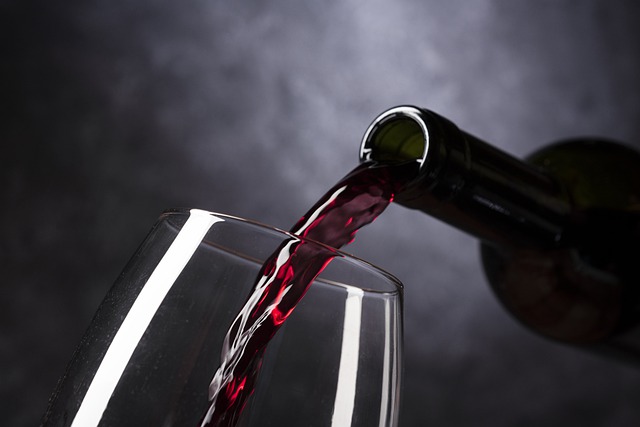
The Oregon Liquor Control Commission (OLCC) has announced a ban beginning January 1 to prohibit makers of alcoholic beverages from adding CBD to the drinks.
Until recently, the best known line of alcoholic drinks with CBD was arguably beers made and sold by Coalition Brewing, which recently shut down their operations.
The cocktail concoctionist at your local watering hole won’t be spared when mixing you a CBD infused kumquat martini either. Although it’s presently legal for an establishment to craft a drink onsite using alcohol and CBD, that pleasure is also under review by the OLCC.
“We’re considering just outright saying that it’s an adulterant for alcohol so you wouldn’t just be able to mix (into) the cocktails,” OLCC Executive Director Steven Marks told Oregon Public Broadcasting. That consideration is expected to be a rule that will go into effect in about four months—so drink ’em while you got em.
This isn’t an altogether unexpected move by the OLCC. In late April, the Federal Alcohol and Tobacco Tax Trade Bureau banned CBD in alcoholic drinks, saying they “will not approve any formulas for alcohol beverages that contain ingredients that are controlled substances under the [Controlled Substances Act].”
From that wording, it can be inferred that the TTTB has issues with CBD solely for being on the Controlled Substances Act list. The OLCC says their concern is for the health of consumers. Per Merry Jane:
“We’ve wanted to address the issue of CBD getting into alcohol and because there are a lot of unknowns about the effect of taking CBDs,” said OLCC spokesperson Mark Pettinger, the Associated Press reports. “There’s very little scientific evidence. People are using them for wellness, but how they interact with other substances, not a lot is known.”
Steve Marks also told Oregon Public Broadcasting that while CBD products are “greatly purported for their health effects, there is a lot of concern about particularly the effect of high quantities of CBD on the liver, which is also affected by alcohol.”
Much like drunkenly french kissing your step-sister under the Mistletoe while you’re both high on X, this action by the OLCC and the reasoning behind it provides a lot to consider.
I have no deep knowledge base of how CBD and alcohol work together on the liver, or any other part of the body, and it’s extremely likely you don’t either. Thanks to our obscenely outdated laws about how the US both views and researches cannabis and cannabinoids such as THC and CBD, we are ignorant as fucking fuck. Mouth breathing, knuckle-dragging morons who are doing the best we can with what we have, but the knowledge gap is deep sea crater-sized in depth and scope.
So not allowing CBD into produced alcohol products until we learn more is certainly the safest choice, although there exists a strong argument for allowing adults of drinking age to make the choices about what other legal substances they should be allowed to consume with alcohol.
Instead of banning all CBD, what about the option for consumer requested additions of CBD added to cocktails mixed at a bar? Consumers could be educated with numerous signs explaining the risks of adding CBD prominently posted. Because drunk people love, read, and follow signs, so, so well.
Merry Jane brings up an interesting point: Marks comment that “there is a lot of concern about particularly the effect of high quantities of CBD on the liver,” it’s reasonable to wonder if this concern stems from the results of a study released this past June. It resulted in news stories forwarded to you by your mother about the dangers of that “CBGB you and Heidi smoke,” screaming with titles such as “Marijuana Study Finds CBD Can Cause Liver Damage” and “New Mouse Study Finds Level of Liver Toxicity for CBD.”
Unless you have invested heavily into a company which solely produces high dose CBD infused products for mice (idiot), this may be of little concern to you, or you may wish to show a new level of caution in how much you consume CBD. But Merry Jane pointed out the study in question is deeply flawed in one critical area.
The study was performed at the University of Arkansas, where researchers gave mice CBD, and some of those mice died within 24 hours due to their little mice livers not doing well with the CBD. Funny story about that, otherwise known as Exhibit A in the class action suit filed by the mice’s survivors: the amounts cited were widely miscalculated, resulting in impossibly high doses. Per Merry Jane:
“Because mice are much smaller than humans, the researchers “allometrically scaled” the doses so they were proportional to human doses. The thing is, the researchers scaled the doses in the wrong direction.
Dose scaling was based off the “maximum recommended human maintenance” amount for Epidiolex in human patients, the first and only FDA-approved CBD drug derived from cannabis. That dose is 20mg/kg. So we’d expect the dose for the mice to be much, much smaller, somewhere in the range of 0.3mg/kg.
The researchers instead dosed the mice on 0, 246, 738, or 2460mg/kg… at the higher end, the mice got 120 times the recommended dose for a full-grown human being.”
Look, I’m neither an adorable mouse scientist, nor a scientist who researches mice, but I believe that if you give a mouse a dose of anything 120 times the recommended dose for a human, you are going to end up with a lab full of dead mice.
That said, credit is due to the University from Merry Jane, recognizing that the study “offer(s) additional evidence that CBD can wreck the liver and potentially compromise people with hepatic diseases or who rely on medications to stay alive.
But that’s not exactly news. Earlier this month, during the FDA’s public hearing on CBD, several doctors and toxicologists testified that CBD could cause health complications in certain people, especially at high doses.”
The drug cited, Epidiolex, isn’t without issues either.
The study’s lead researcher Igor Koturbash told Nutra Ingredients USA, “If you look at the Epidiolex label, it clearly states a warning for liver injury. It states you have to monitor the liver enzyme levels of the patients. In clinical trials, 5 percent to 20 percent of the patients developed elevated liver enzymes, and some patients were withdrawn from the trials.”
I’m left wondering a few things about this widely reported study, however. What type of CBD were they using? Alcohol distillate, broad spectrum or full spectrum? From locally sourced and tested domestically grown hemp, or untested imports? Would the results be different if THC was introduced above the .3 trace amount Federal limits?
If you still want CBD in your alcoholic beverage after January 1, here’s an idea: Buy yourself a small dropper bottle of CBD tincture from your local dispensary, and add it to whatever you are drinking. No one is going to ask about it, and if they do, tell them you’re microdosing.

